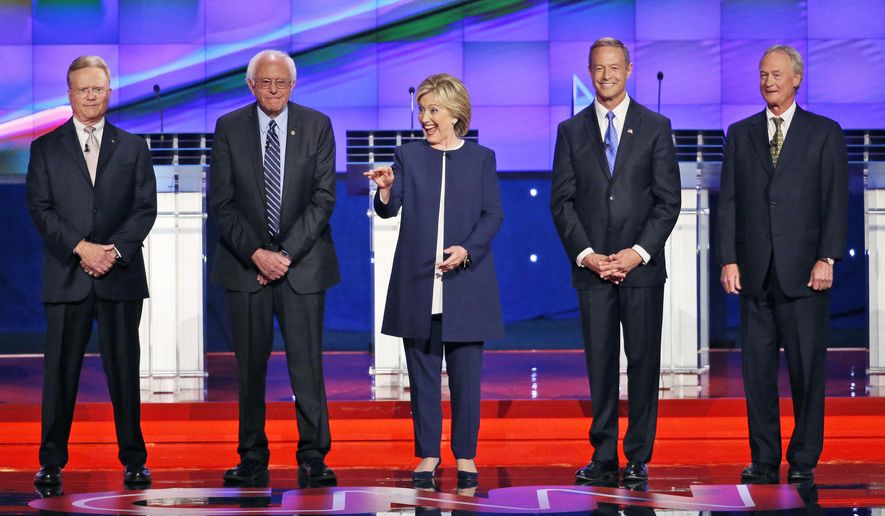The five Democratic presidential candidates pushed proposals in their first debate that would cost trillions in new spending, from free college tuition to single-payer health care.
Sen. Bernard Sanders of Vermont is the biggest spender of the group, championing universal government-run health care, expanded Social Security and free tuition at public colleges in a platform that The Wall Street Journal estimated last month would cost $18 trillion over 10 years.
The “College for All Act” advocated by Mr. Sanders would cost $109.9 billion in its first year, according to the National Taxpayers Union.
Former Secretary of State Hillary Rodham Clinton is proposing a plan to make college more affordable that will cost taxpayers roughly $350 billion over 10 years, NTU said. Her campaign said it would be fully paid for by limiting tax breaks for certain high-income taxpayers.
The Republican National Committee said Mrs. Clinton proposed $515 billion in new domestic spending over 10 years in the debate Tuesday night, on initiatives ranging from energy to education.
One of the Republican candidates for president, Sen. Marco Rubio of Florida, called the Democrats’ event Tuesday night “a liberal versus liberal debate about who was going to give away the most free stuff.”
SEE ALSO: Winners and losers in the first Democratic debate
His criticism drew a rebuke from the Democratic National Committee spokeswoman Christina Freundlich, who said Mr. Rubio and former Florida Gov. Jeb Bush are interested in “dishing out breaks for the wealthiest and powerful corporations” while Democratic candidates are pushing initiatives to help the middle class.
All five Democratic presidential candidates support some form of paid family leave, which is typically funded by employee contributions. The estimated cost for Mr. Sanders’ proposed paid family and medical leave fund is $319 billion over 10 years.
There are related costs to businesses for paid leave; some companies say that providing paid family leave cuts into their profits, or results in price increases or curtails hiring.
On Mr. Sanders’ proposal to lift the cap on income subject to Social Security taxes, the senator claimed the plan would extend the program’s finances and expand benefits. It would extend the life of the Social Security trust funds by an estimated four years, but Mr. Sanders didn’t mention that the people who pay the higher taxes wouldn’t see any benefit from them, a departure from current practice, according to Factcheck.org.
The NTU has calculated that Mr. Sanders’ agenda totals $1 trillion in annual spending increases, and that in the past six years he has supported spending at levels 17 times higher than that of the average Senate Democrat.
The federal government spent $435 billion more than it took in during fiscal 2015. The budget deficit for fiscal 2016 is projected to fall slightly, to around $414 billion, before it begins to rise again, reaching an estimated $1 trillion in fiscal 2025.
SEE ALSO: Democratic debate takeaway: Clinton’s performance narrowed Biden’s opening
• Dave Boyer can be reached at dboyer@washingtontimes.com.




Please read our comment policy before commenting.